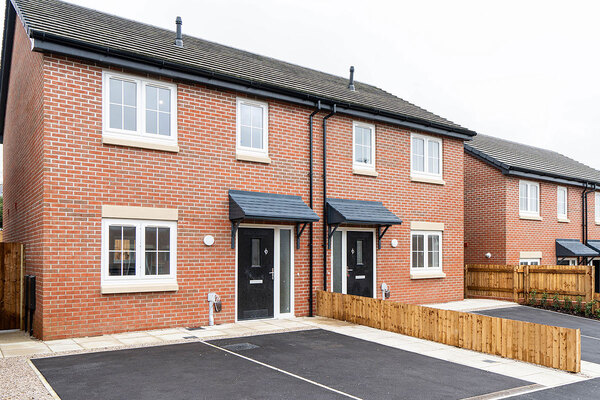You are viewing 1 of your 1 free articles
Torus boss calls for new approach to valuing public assets after affordability research
The group chief executive of Torus has called for a “more rounded approach” to valuing public assets released for new affordable housing after research found that residents on the lowest incomes are spending the most on rent.
Steve Coffey’s comments came after a report commission by the landlord found that average rents in its home city of Liverpool had grown by 48% in the past five years. This compared with a 39% rise in the rest of England.
Over the same period, rent increases in Liverpool far exceeded the rise in household incomes, the report found.
The 40,000-home association commissioned property agent Avison Young to assess the affordability of housing in Liverpool so it can shape its plans for building homes for social rent and prioritise places where financial pressure on households is greatest.
Mr Coffey said: “A more rounded approach to valuing public assets released for new affordable housing would help us enormously.
“Specifically valuing the outcomes that new specialist supported housing has on reducing wider public health and social care costs or the impact that good-quality social housing has on cutting fuel poverty or temporary accommodation costs.
“A co-ordinated sub-regional plan for housing growth and a long-term land acquisition programme to create a pipeline of sites would have a huge impact. It would allow us to better plan for construction and create scale for viable MMC [modern methods of construction] propositions.”
The chief executive also believes that the creation of local development partnerships and joint ventures on a sub-regional level and innovatively using land as equity would further boost housebuilding.
Torus’ report revealed that renters in areas such as Toxteth have the lowest incomes in Liverpool and are living in the least affordable area of the city.
The average net household income in Toxteth before housing costs is £25,636 and with an average private rent of £890 per month, it means 42% of income is spent on rent.
Using a benchmark that housing costs should be no more than 30% of income to align more closely with Local Housing Allowance rates, residents there pay 12% more and over double the 20% Liverpool social rent cap.
Stephen Cowperthwaite, managing director for Liverpool at Avison Young, said: “Housing affordability is a significant challenge nationally, but with different factors at play at local levels, there isn’t a ‘one size fits all’ solution.”
There are currently 14,932 people registered on the social housing waiting list in Liverpool, which represents 3% of the city’s population.
At the same time, average residential prices in Liverpool have grown by 69% over the past 10 years, compared with 46% in England.
Property prices in the city are also growing quickest at the lower quartile of the market, making it harder for the lowest income households to afford to live.
Mr Coffey added: “Funding flexibility is vital. More local decision-making over the use of public housing investment funds means we could promote genuinely affordable housing in areas that have the most acute needs like Toxteth and Kirkdale.
“It is really important that the government recognises that grant subsidy rather than loans or equity investments will best underpin the acceleration of delivery but loans and equity can complement our plans.
“There is no getting away from the need for a long-term plan for housing and that it needs to be supported by a long-term Affordable Homes Programme that offers the right level of subsidy to build social rented homes.
“Without it, the sector faces a huge challenge to deliver social rent in any location if the cost of developing a new home averages £250,000, as The Housing Forum recently reported.
“But if government pooled and streamlined grants into fewer, more flexible funds, we could use this money where it is needed most to acquire land, unlock larger sites and subsidise rents.”
Mr Coffey recently spoke to Inside Housing about his time as chair of Homes for the North and his desire to leave “a legacy of development and prosperity across the region”.
On the landlord’s latest report, he said: “We need to change the way the social housebuilding sector operates to minimise the impact of high land values and construction costs while building at volume with greater efficiency.
“By creating and adopting a city-wide policy with partners such as housing associations, funding bodies, delivery organisations and local authorities, we can deliver this ambition.
“Competition and scarcity of land only serves to inflate prices and ultimately rents.
“We also need to better demonstrate how greater value for money can be achieved to all by building more genuinely affordable homes.”
The government has been asked for a response to the report.
Earlier this month, Torus secured a £217.5m funding package from three existing lenders to help it build 1,000 new affordable homes annually.
Sign up for our development and finance newsletter
Already have an account? Click here to manage your newsletters












